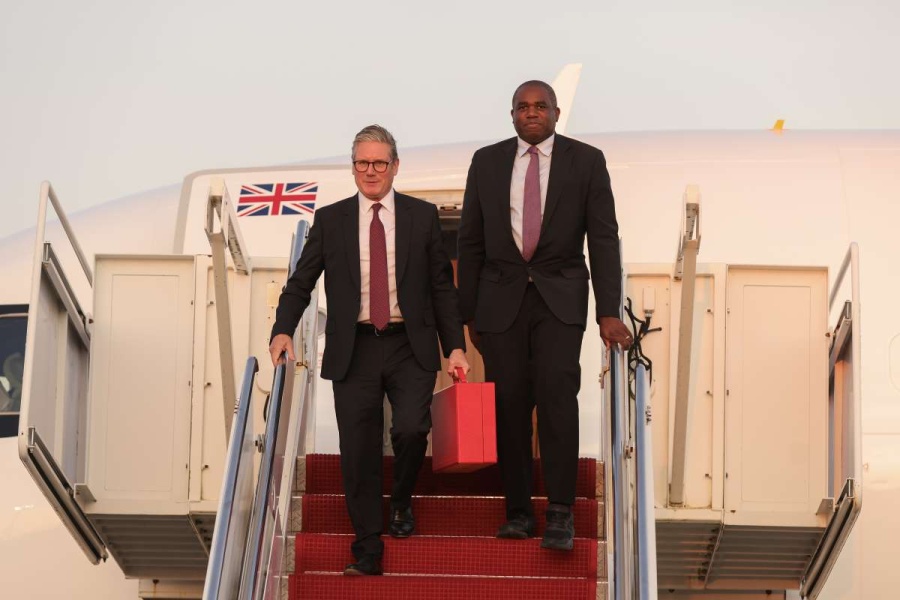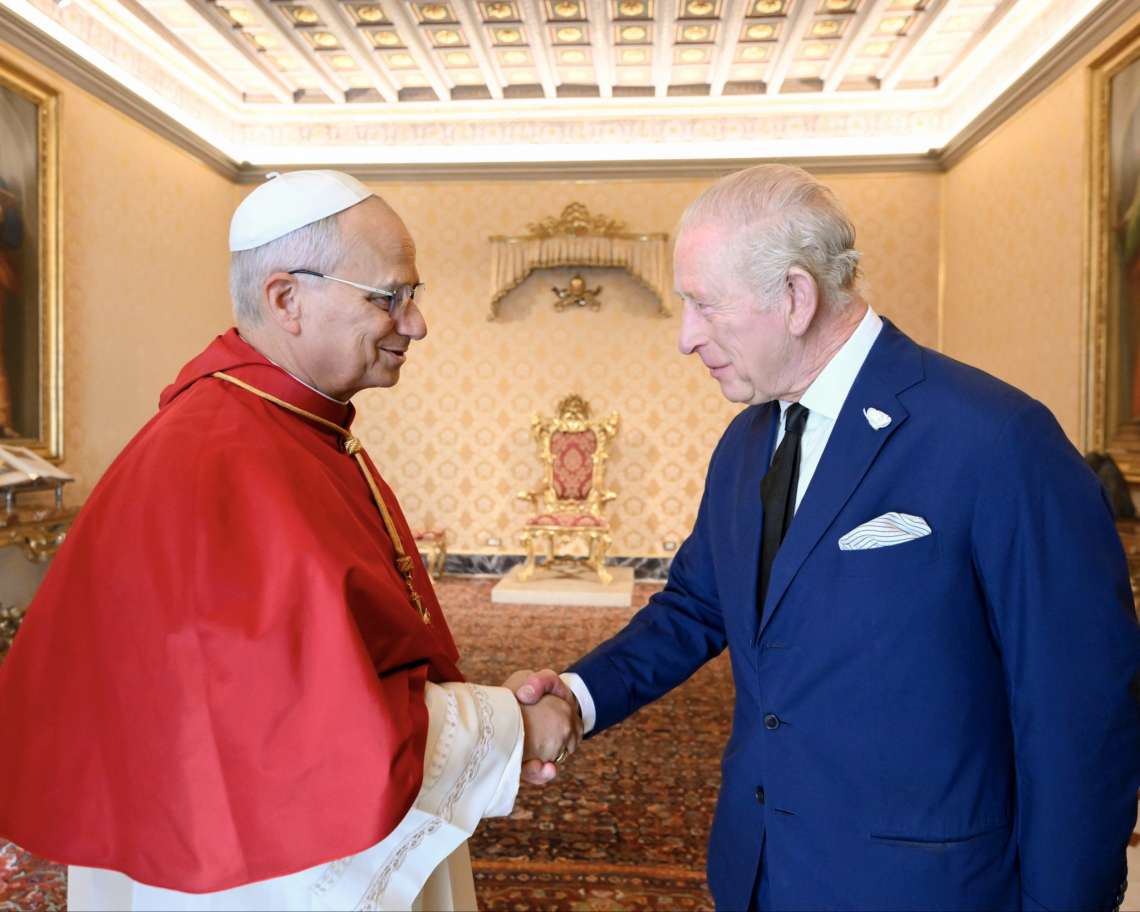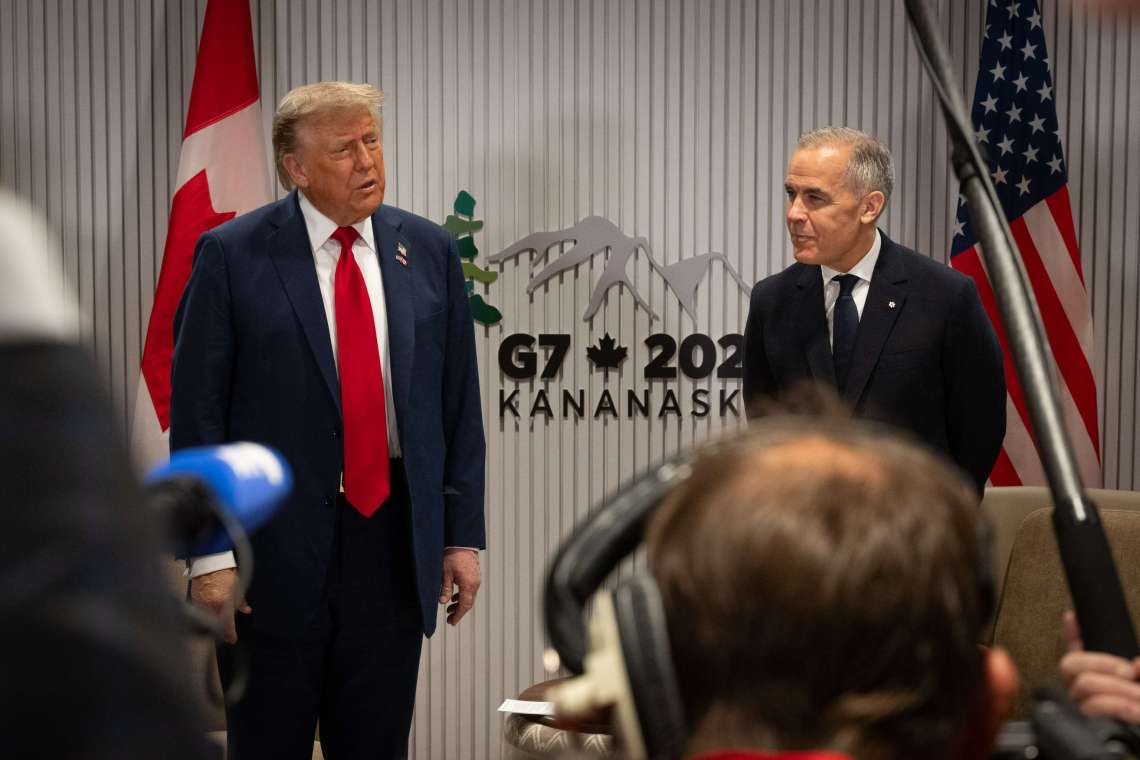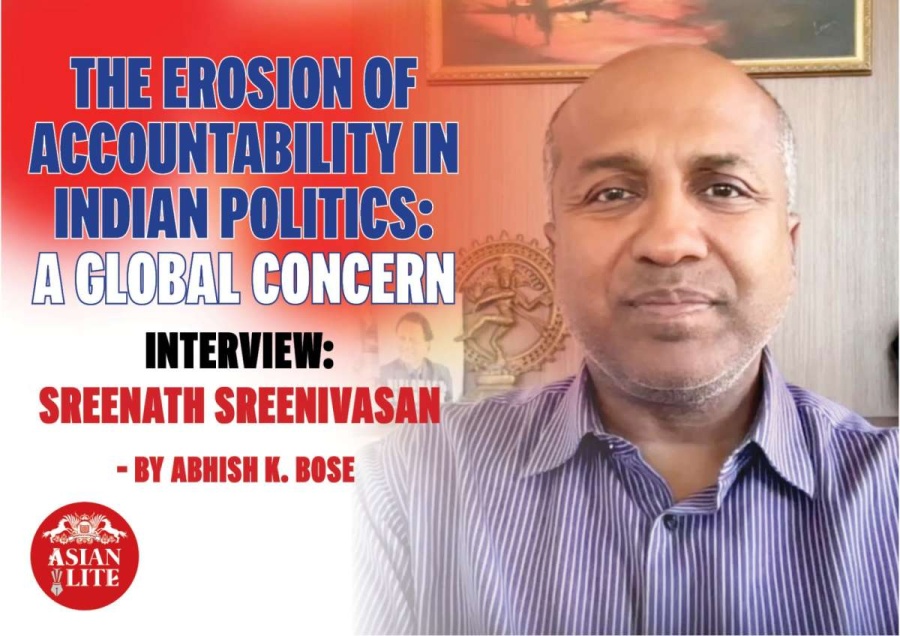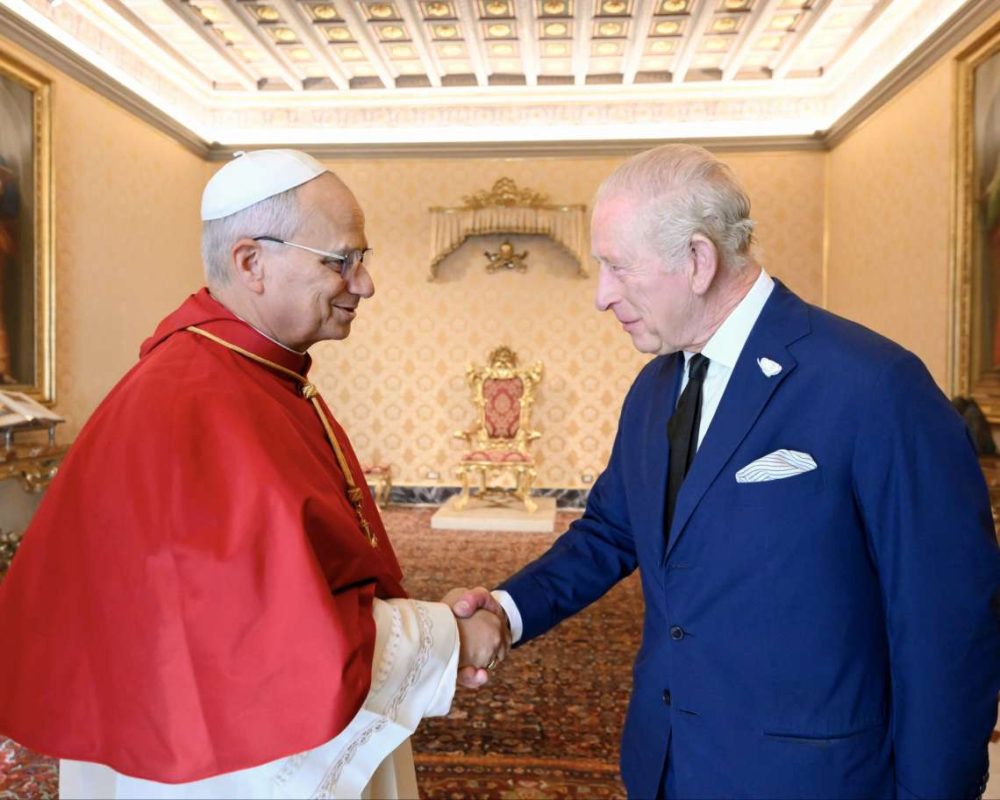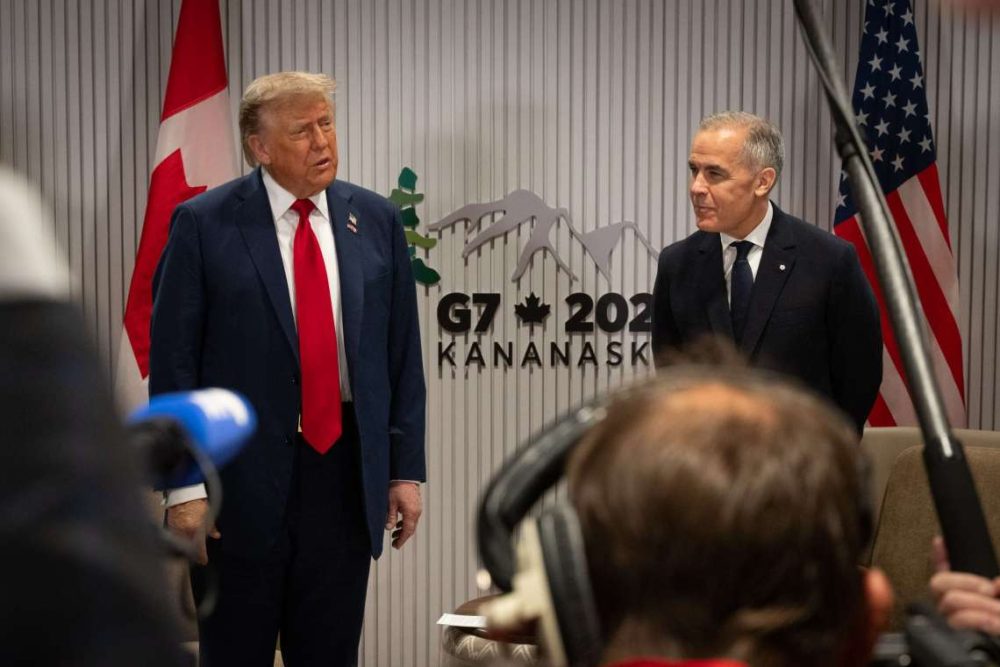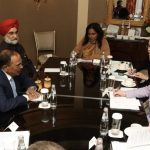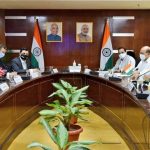Since the war Britain, aware that America had displaced Britain as the supreme power, has tried to hold on to some semblance of still being influential in world affairs by making much of its “special relationship” with America. With Trump in power all this means is that Nigel Farage, a backbench MP, has a special relationship with Trump… writes Mihir Bose
Dean Acheson, Secretary of State under President Harry Truman, famously said Britian has lost an empire but not found a role. They were made just after India won freedom but while they riled Britain then, and still does, they remain relevant. Keir Starmer may have come to power saying he would reset Britain’s foreign relations, but he has given no indication that he has found the switch, let alone move the dial.
This was vividly demonstrated during the G 20 summit in Brazil. To begin with look how the world sees Britain. Just before the summit the environmentalist campaigners circulated a mock up photograph of the heads of different world leaders bobbing just above the surface of a hostile sea indicating their inability to deal with the climate crisis. The heads featured the leaders of America, Russia, China, France, and India but no head of Starmer. Nothing better illustrates that, despite all that British politicians claim, it just does not cut the mustard on the world stage.
Since the war Britain, aware that America had displaced Britain as the supreme power, has tried to hold on to some semblance of still being influential in world affairs by making much of its “special relationship” with America. With Trump in power all this means is that Nigel Farage, a backbench MP, has a special relationship with Trump.
The other British claim is that it punches above its weight. Whenever I hear that I always think of the minnows who play in the FA Cup and manage to beat a top team and then preen themselves as giant killers. They get a few sport media headlines, but they change nothing. This is what Britain does on the world stage.
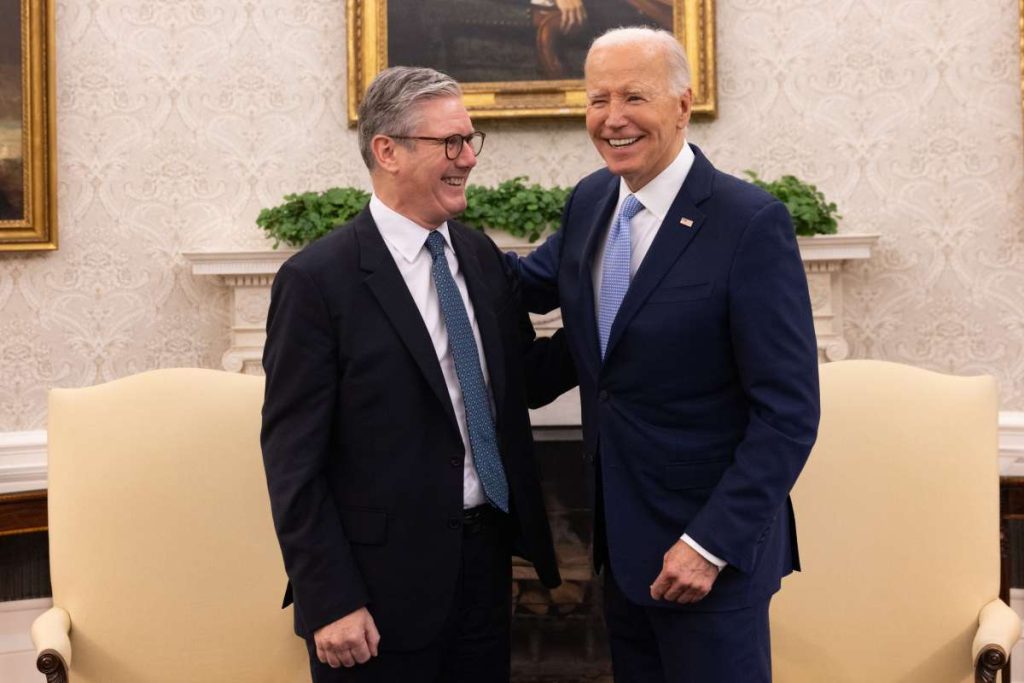
Nothing demonstrates this further than Starmer’s attempt to reset relationship with China and India.
Take China. It now seems another century when David Cameron had a beer with Xi Jinping in a pub in his constituency. Now we are told Chinese spies are everywhere. It is taking over countries in Asia and Africa creating a new Chinese empire and its cheap goods flooding western countries are destroying industry in these countries. We know Trump will impose huge tariffs on imports to America which could unleash a dreadful trade war.
So, what is Sir Keir Starmer’s response? A handshake with Xi Jinping on the sidelines of the G20 in Brazil with much being made of this being the first such meeting between the British and Chinese leaders since 2018. Rachel Reeves will follow up with a visit to China all part of what Starmer calls a “strong UK-China relationship”. But what will it mean? Will Starmer ask Xi Jinping to remove the secret devises the Chinese are supposed to have put in our fridges to record what we are saying as we get a carton of milk from the fridge?
The fact is Britain needs China more than China needs Britain. The media may talk of Chinese students coming to this country being spies but cut their numbers and you further decrease the income of British universities which are already hard pressed. All that will do is increase student fees which can hardly help Labour’s chances of holding on to power.
What Britain needs is to understand that the China of Xi Jinping has a completely different worldview, both domestically and in foreign affairs, to Deng Xiaoping, the Chinese leader the west fell in love with. This has been very well analysed by the former Australian Prime Minister Kevin Rudd who knows China and can speak Chinese. Rudd says that China’s economic thinking has moved to the left in a decisively more statist direction away from the historical dynamism of the private sector and Xi has a much harder edged foreign policy vision of China and a new determination to change the international status quo. This worldview is an integrated one where his ideological vision for China’s future is ultimately inseparable from his view on China’s position in the region and the world. For Xi “struggle” is a legitimate concept for the conduct of both Chinese domestic and foreign policy.
I would urge Sir Keir Starmer, or at least some of his advisors, to read Kevin Rudd’s On Xi Jinping, published by the Oxford University Press. Maybe Lord Ali could give this to him as a Christmas present. He could certainly afford the price of £26.99.
The G20 in Brazil also saw Starmer shake hands with Narendra Modi, the India Prime Minister and much was made of a new trade deal. Talks on a trade deal have been going on since Brexit and they have got nowhere because Britain will not give India what it wants. More opportunities for Indian students to come here. I wonder if after the handshake Starmer is offering Modi a Diwali present promising him that. If he did then it will not please Kemi Badenoch, the Tory leader who, when Business and Trade Secretary, ruled it out because it would increase migration.
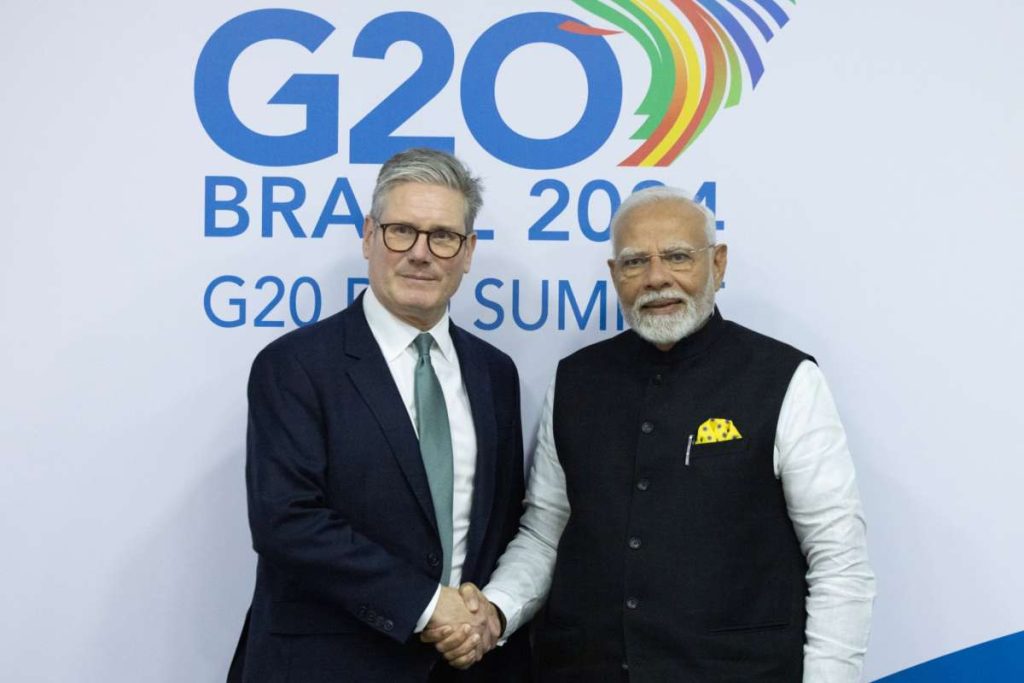
India, of course, presents a very different problem to Labour compared to China. Britain is no longer the country Indian leaders look to when they look abroad. Britain was one of the last countries Modi visited when he became Prime Minister. Also, the hold on Indian voters which Labour, on the basis it had given India freedom, had, has gone. During the last two elections a majority of Hindus voted for the Conservatives. The Gaza crisis has meant there were also defections from Muslims, although not to Conservatives but other parties creating some major upsets in Labour strongholds. Labour no longer has a major politician who can claim to have close connections with Indian leaders.
Starmer and Modi would never be bhai-bhai, brother-brother in the way say Modi is with Netanyahu and has tried, with some success, to be with Trump, even though he such a mercurial politician that one day a bhai, next day he could be dushman, enemy. Against such a background trade talks are unlikely to succeed. This could prove to another Starmer reset which is more words than action. Labour, as Acheson said, would still be left searching a role.
(Mihir Bose is the author of Thank You Mr Crombie Lessons in Guilt and Gratitude to the British.)
ALSO READ: Reeves may wait until June to announce Whitehall budget details


